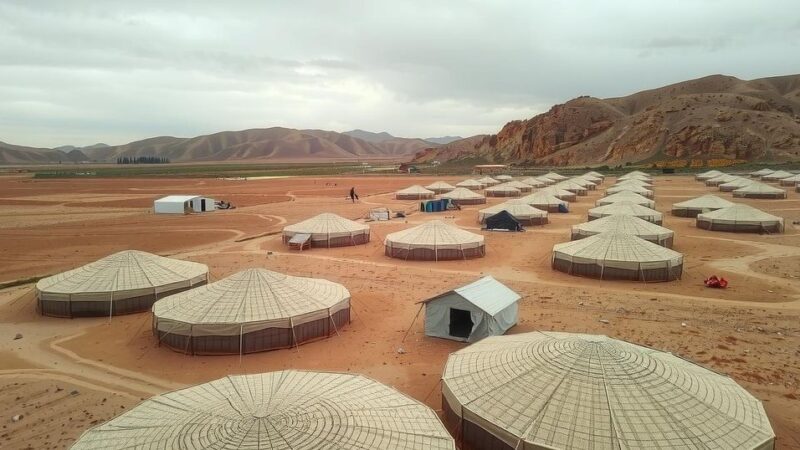The U.S. foreign aid freeze poses a critical threat to health care for Sudanese refugees in Chad, affecting mostly women and children. With a significant portion of aid halted, organizations like UNFPA struggle to maintain vital services. The cuts impact healthcare access, particularly maternal services, exacerbating the ongoing humanitarian crisis amid the conflict.
The recent U.S. foreign aid freeze has jeopardized essential health care services for Sudanese refugees in Chad, primarily affecting women and children. According to the U.N., a staggering ninety percent of these refugees are women and children seeking safety from the ongoing conflict in Sudan. The aid freeze instigated by the Trump Administration has halted vital humanitarian assistance, positioning aid organizations in a precarious funding crisis akin to risking lives across several nations.
The U.S. Agency for International Development (USAID) reported significant reductions in its programs, with Secretary of State Marco Rubio announcing an 83% cut. He indicated the U.S. aimed to diminish the size of the federal government by sidelining foreign aid programs. Reports indicate individuals in the humanitarian sector are expressing deep concern over the abruptness of these changes, especially in maintaining operations vital for survival.
Almost 700,000 refugees have fled from Sudan into Chad since the conflict’s resurgence in April 2023, leading to one of Chad’s largest refugee influxes. The U.N. asserts that up to 60% of the Sudanese population is currently without adequate health services, necessitating the ongoing support from organizations like the U.N. Population Fund (UNFPA), which predominantly relies on U.S. funding.
Daralssalam Issa, a refugee from Sudan, reflects on the dramatic shift in her life due to the conflict. The humanitarian efforts in Chad include deploying trained midwives to assist women lacking essential health care. The UNFPA’s dedicated staff are actively offering mobile clinics and crucial health services to combat the detrimental impacts on maternal health.
The health care system in Chad faces significant challenges, especially in maternal care, as it grapples with one of the highest maternal mortality rates globally. UNFPA’s contribution is essential in providing direct support to maternal services and addressing the needs of a highly vulnerable population amid the foreign aid freeze.
Soliri Adete, a midwife with UNFPA, emphasizes her role in attending to the needs of women suffering from health issues, including trauma and sexual violence. Even in this difficult environment, UNFPA’s trained midwives are critical in ensuring safe deliveries for pregnant women within refugee camps, despite the lack of adequate facilities.
Odia warns that without immediate funding, the ability to sustain these essential services will dwindle, risking the lives of countless women and newborns, leading to increased maternal mortality rates. As aid organizations seek potential alternatives through humanitarian waivers, the overall confusion surrounding the application process underscores the urgent need for continuity in these life-saving operations.
The U.S. foreign aid freeze presents a significant threat to health care services for Sudanese refugees in Chad, particularly affecting women and children. The drastic cuts to USAID programs have left organizations scrambling to fill the gaps left by such funding cessation. As the health system in Sudan collapses and conflicts grow, the UNFPA plays a crucial role in providing necessary health services. Sustained support and timely funding are imperative to avert a health crisis among the refugee population in Chad.
Original Source: abcnews.go.com






